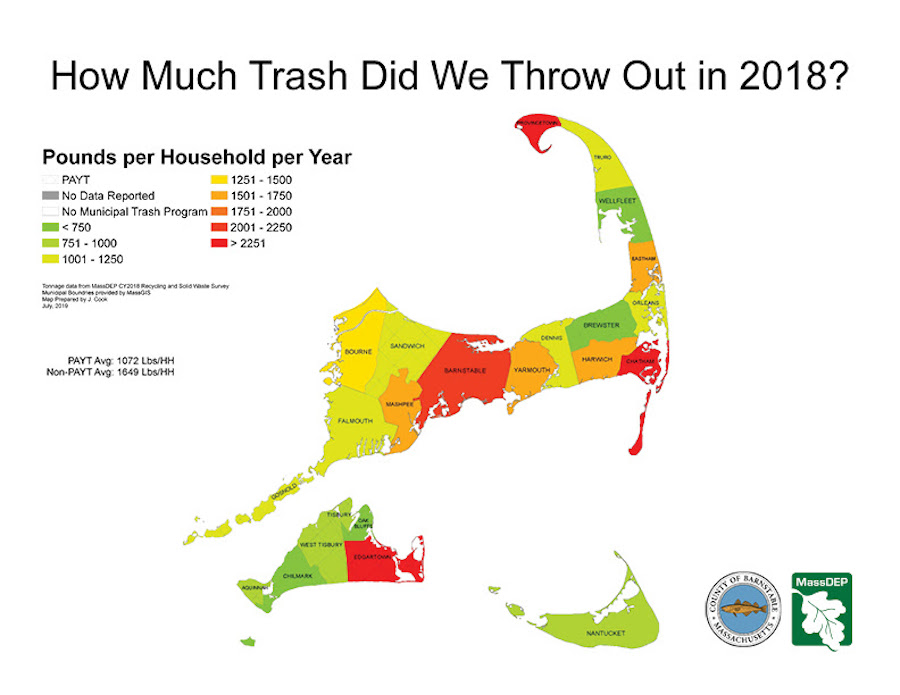Throughout Barnstable County, the Commonwealth, and the country, municipalities are struggling with the very real issue of too much trash with no place to put it, and the accompanying increase in handling costs. The Independent’s recent article on Provincetown’s town budget [Jan. 16, page 8] highlighted the fact that increased waste management costs are about equivalent to the overage in this year’s budget. While the select board grapples with the Herculean task of cutting costs, there are a few things we residents and even visitors can do to make a dent in the skyrocketing cost of handling our solid waste. Given that costs are tied to weight, here are some suggestions:
- Buy less stuff. Period. The less stuff we have, the less there will be to throw “away” later.
- When we do buy stuff, opt for the stuff with less packaging to throw “away.” Buy in bulk.
- Does it still work? Is it in good condition? Try donating it to the swap shop, Ruthie’s, or the Provincetown Mall (Methodist Church Thrift Store), and give someone else a chance to enjoy or employ it.
- Before clicking “check out” online, consider the packaging involved with that shipment, and whether the item can be purchased in person locally or even off Cape, with a little planning.
- Take advantage of our transfer station’s acceptance of textiles, mattresses, metal, wood, electronics, light bulbs, packing peanuts, and corrugated cardboard — none of those items should ever be thrown “away.”
- Compost all the organics. Even in our little hamlet with a rat problem, there are ways of composting household food scraps so as to remove 30 to 40 percent of the weight of our solid waste while not attracting varmints. Vermiculture is one way; a well-managed, contained backyard composter is another. Ask someone who is doing it already for advice.
- Understand that recycling is a myth when it comes to most plastics, and any choice you can make that is not a single-use plastic item will ultimately reduce the waste load — especially since trash and recyclables now cost the same per ton for the town to handle.
- Push for change. We consumers can only do so much with our individual choices. Ask your reps to support legislation that encourages Extended Producer Responsibility, where the manufacturer is required to take back and recycle or re-integrate the item at the end of its life.
Provincetown already has a great track record in regulating our trash and recycling, probably because we are immersed in an environment adversely affected by pollution (the ocean). We led the Cape in banning plastic bags back in 2015, and we have since phased out plastic straws and #6 Polystyrene. The town collects and recycles cigarette butts in an effort to keep the streets and beaches clean. We install more free filtered water bottle-filling stations every year, and single-use plastic water bottles may be on their way out. Helium balloons have been banned since 1993! Making small shifts to our habits, and occasional big shifts to our way of thinking, will help the town reduce its costs for dealing with our waste.
Bottom line: there is no “away.” Our convenient trash and recycling collection allows us to think we’ve done our part by lugging the stuff to the curb — but we can make the most difference long before that step.
Laura Ludwig is coordinator of the Marine Debris & Plastics Program at the Center for Coastal Studies in Provincetown.




